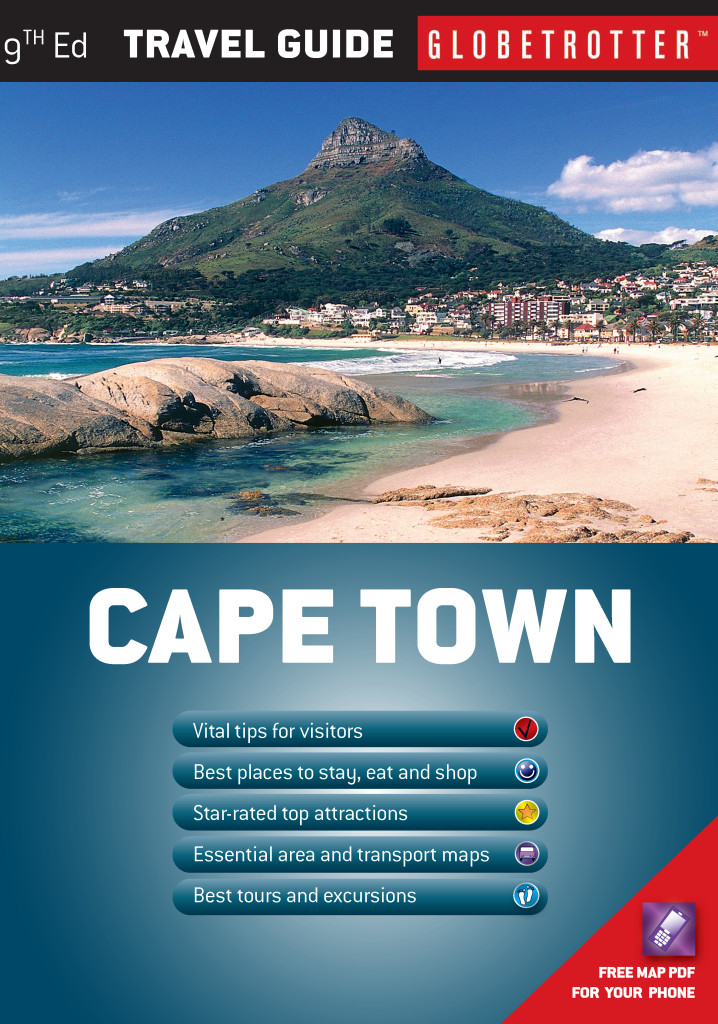
Cape Town, a city nestled between the dramatic silhouette of Table Mountain and the vast expanse of the Atlantic Ocean, is more than just a pretty face. It’s a vibrant tapestry woven with threads of history, culture, adventure, and breathtaking natural beauty. From its turbulent past to its modern cosmopolitan flair, Cape Town offers an unforgettable experience for every type of traveler. This guide will navigate you through the city’s highlights, ensuring you make the most of your South African adventure.
A Journey Through Time: Cape Town’s History
Cape Town’s history is a complex and often poignant narrative. Long before European settlers arrived, the land was inhabited by the Khoikhoi and San people. Their rich heritage, unfortunately, was largely overshadowed by the arrival of the Dutch East India Company in 1652, who established a refreshment station for ships rounding the Cape of Good Hope.
Related Articles about Cape Town: A Jewel at the Tip of Africa – Your Ultimate Travel Guide:
- Aloha Spirit and Volcanic Wonders: Your Ultimate Guide to the Top Things to Do in Hawaii
- Aloha Awaits: Your Comprehensive Travel Guide to the Enchanting Islands of Hawaii
- Sweden: A Tapestry of Royal Grandeur, Natural Wonders, and Vibrant Culture
- Venice: A Labyrinth of Dreams and Waterways
- Nepal: A Journey to the Roof of the World and Beyond
This settlement quickly evolved into a colony, attracting immigrants from Europe and bringing with it the devastating consequences of slavery. Slaves were brought from Indonesia, Madagascar, and other parts of Africa, contributing significantly to the city’s development but suffering immense hardship.
The British seized control in 1795, adding another layer to the city’s colonial past. The discovery of diamonds and gold in the late 19th century further fueled economic growth but also exacerbated racial inequalities.
The 20th century saw the rise and brutal implementation of apartheid, a system of institutionalized racial segregation that profoundly impacted Cape Town and the entire country. District Six, a vibrant multicultural neighborhood, was forcibly demolished in the 1960s, and its residents were displaced, a stark reminder of the injustices of the era.
The release of Nelson Mandela in 1990 and the subsequent dismantling of apartheid marked a turning point. Cape Town played a crucial role in South Africa’s transition to democracy, and the city continues to grapple with its past while striving for a more equitable future.
Understanding this history is essential to appreciating Cape Town’s present-day identity and its ongoing journey towards reconciliation.
Must-See Attractions: A City of Wonders
Cape Town is a treasure trove of attractions, offering something for everyone. Here are some of the highlights:
-
Table Mountain: No trip to Cape Town is complete without ascending Table Mountain. You can hike up (various routes cater to different fitness levels) or take the cable car for panoramic views of the city, the Atlantic coastline, and the surrounding mountain ranges. Remember to check the weather conditions before heading up, as the "tablecloth" of cloud can quickly obscure the views.
-
Robben Island: A UNESCO World Heritage Site, Robben Island served as a prison for political prisoners, including Nelson Mandela, for decades. A ferry trip to the island and a guided tour, often led by former political prisoners, offer a powerful and moving experience, providing a stark reminder of the apartheid era.
-
V&A Waterfront: A bustling harbor-front area filled with shops, restaurants, museums, and entertainment options. The V&A Waterfront is a great place to stroll, enjoy live music, take a boat trip, or visit the Two Oceans Aquarium, home to a diverse array of marine life.
-
Kirstenbosch National Botanical Garden: Situated at the foot of Table Mountain, Kirstenbosch is a world-renowned botanical garden showcasing the incredible diversity of South Africa’s flora. Wander through themed gardens, explore the Boomslang (tree canopy walkway), and enjoy a picnic amidst stunning natural beauty.
-
Cape Point: Located at the southwestern tip of the Cape Peninsula, Cape Point offers dramatic scenery, rugged cliffs, and breathtaking ocean views. Take a funicular ride to the lighthouse, explore the Cape of Good Hope Nature Reserve, and keep an eye out for wildlife, including baboons and ostriches.
-
Bo-Kaap: This vibrant neighborhood, known for its brightly colored houses and rich cultural heritage, is a photographer’s dream. Take a stroll through the cobbled streets, learn about the history of the Cape Malay community, and sample traditional cuisine.
-
District Six Museum: A poignant museum dedicated to preserving the memory of District Six and its forced removals during apartheid. The museum offers a powerful and moving insight into the human cost of segregation.
-
Beaches: Cape Town boasts a stunning coastline with a variety of beaches to choose from. Camps Bay and Clifton are popular for sunbathing and swimming, while Muizenberg is known for its colorful beach huts and surfing opportunities. Boulders Beach is famous for its colony of African penguins.
-
Wine Lands: A short drive from Cape Town lies the Cape Winelands, a region renowned for its picturesque vineyards, world-class wines, and historic estates. Explore the towns of Stellenbosch, Franschhoek, and Paarl, indulge in wine tastings, and enjoy gourmet meals at award-winning restaurants.
Essential Travel Tips for a Smooth Trip:
-
Safety: While Cape Town is a beautiful city, it’s important to be aware of your surroundings and take precautions against petty crime. Avoid walking alone at night in poorly lit areas, keep valuables out of sight, and be cautious when using ATMs. Consider using ride-sharing services instead of hailing taxis on the street.
-
Currency: The South African currency is the Rand (ZAR). Credit cards are widely accepted, but it’s always a good idea to carry some cash for smaller establishments and markets.
-
Language: South Africa has 11 official languages, but English is widely spoken in Cape Town, especially in tourist areas.
-
Tipping: Tipping is customary in South Africa. A 10-15% tip is expected in restaurants, for taxi drivers, and for other service providers.
-
Sun Protection: The South African sun can be intense, even on cloudy days. Wear sunscreen, a hat, and sunglasses to protect yourself from sunburn.
-
Water Conservation: Cape Town has experienced severe droughts in recent years, so it’s important to be mindful of water usage. Take shorter showers, avoid leaving taps running, and report any leaks.
-
Transportation: Getting around Cape Town is relatively easy. Options include ride-sharing services (Uber and Bolt are popular), MyCiTi bus rapid transit system, rental cars, and taxis.
-
Electricity: South Africa uses a three-pin plug (Type M). You will need an adapter if your devices use a different plug.
-
Book in Advance: Especially during peak season, it’s advisable to book accommodation, tours, and activities in advance to avoid disappointment.
The Best Time to Visit Cape Town:
The best time to visit Cape Town depends on your priorities:
-
Summer (November to February): This is the peak season, with warm, sunny days and balmy evenings. Ideal for beachgoers, outdoor activities, and exploring the city’s attractions. However, expect higher prices and larger crowds.
-
Autumn (March to May): A pleasant time to visit, with mild temperatures, fewer crowds, and stunning autumn foliage in the winelands.
-
Winter (June to August): The off-season, with cooler temperatures and occasional rainfall. However, this is also whale-watching season, and you can often spot Southern Right whales migrating along the coast. Prices are generally lower during this time.
-
Spring (September to October): A beautiful time to visit, with wildflowers blooming across the landscape and pleasant weather.
Where to Stay: Nearby Hotels for Every Budget
Cape Town offers a wide range of accommodation options to suit every budget and preference:
-
Luxury: The Silo Hotel (V&A Waterfront), One&Only Cape Town (V&A Waterfront), The Twelve Apostles Hotel & Spa (Camps Bay), Ellerman House (Bantry Bay).
-
Mid-Range: Radisson RED Hotel V&A Waterfront Cape Town, The Winchester Mansions Hotel (Sea Point), Cape Town Hollow Boutique Hotel (City Centre), The Commodore Hotel (V&A Waterfront).
-
Budget: Once in Cape Town (City Centre), Never at Home Cape Town (Green Point), The Backpack (Gardens), Ashanti Lodge Gardens (Gardens).
-
Guesthouses & Boutique Hotels: Many charming guesthouses and boutique hotels are located in areas like Camps Bay, Sea Point, and Gardens.
A Culinary Adventure: Indulging in Local Food
Cape Town’s culinary scene is as diverse and vibrant as the city itself. Be sure to try these local specialties:
-
Bobotie: A spiced minced meat dish baked with an egg-based topping, often served with yellow rice and chutney.
-
Biltong: A cured, dried meat snack, similar to jerky, available in various flavors.
-
Boerewors: A traditional South African sausage, often grilled or barbecued.
-
Cape Malay Curry: A fragrant and flavorful curry influenced by Indonesian and Malaysian cuisine.
-
Seafood: With its coastal location, Cape Town offers a wide selection of fresh seafood, including snoek (a local fish), calamari, and prawns.
-
Bunny Chow: A hollowed-out loaf of bread filled with curry, popular in Durban but also found in Cape Town.
Don’t forget to sample local wines, including Pinotage, a uniquely South African grape variety. Explore the markets and food stalls for authentic and affordable culinary experiences.
Getting Around: Transportation Options in Cape Town
-
MyCiTi Bus: An efficient and affordable bus rapid transit system that connects many parts of the city. You’ll need a MyConnect card to use the service.
-
Ride-Sharing Services (Uber & Bolt): Convenient and readily available, especially for travel within the city center and to popular tourist destinations.
-
Rental Car: Provides flexibility for exploring the surrounding areas, such as the Cape Peninsula and the winelands.
-
Taxis: Available, but generally more expensive than ride-sharing services. Ensure the taxi is metered or agree on a price before starting your journey.
-
Hop-On Hop-Off Bus: A convenient way to see the main attractions, with multiple routes covering different parts of the city.
-
Walking: A great way to explore the city center, especially areas like the V&A Waterfront and the Bo-Kaap.
Cape Town is a city that captivates and inspires. With its stunning natural beauty, rich history, and vibrant culture, it offers an unforgettable travel experience. By planning your trip carefully and following these tips, you can create lasting memories and discover the magic of this jewel at the tip of Africa. So, pack your bags, embrace the adventure, and prepare to be enchanted by Cape Town!








